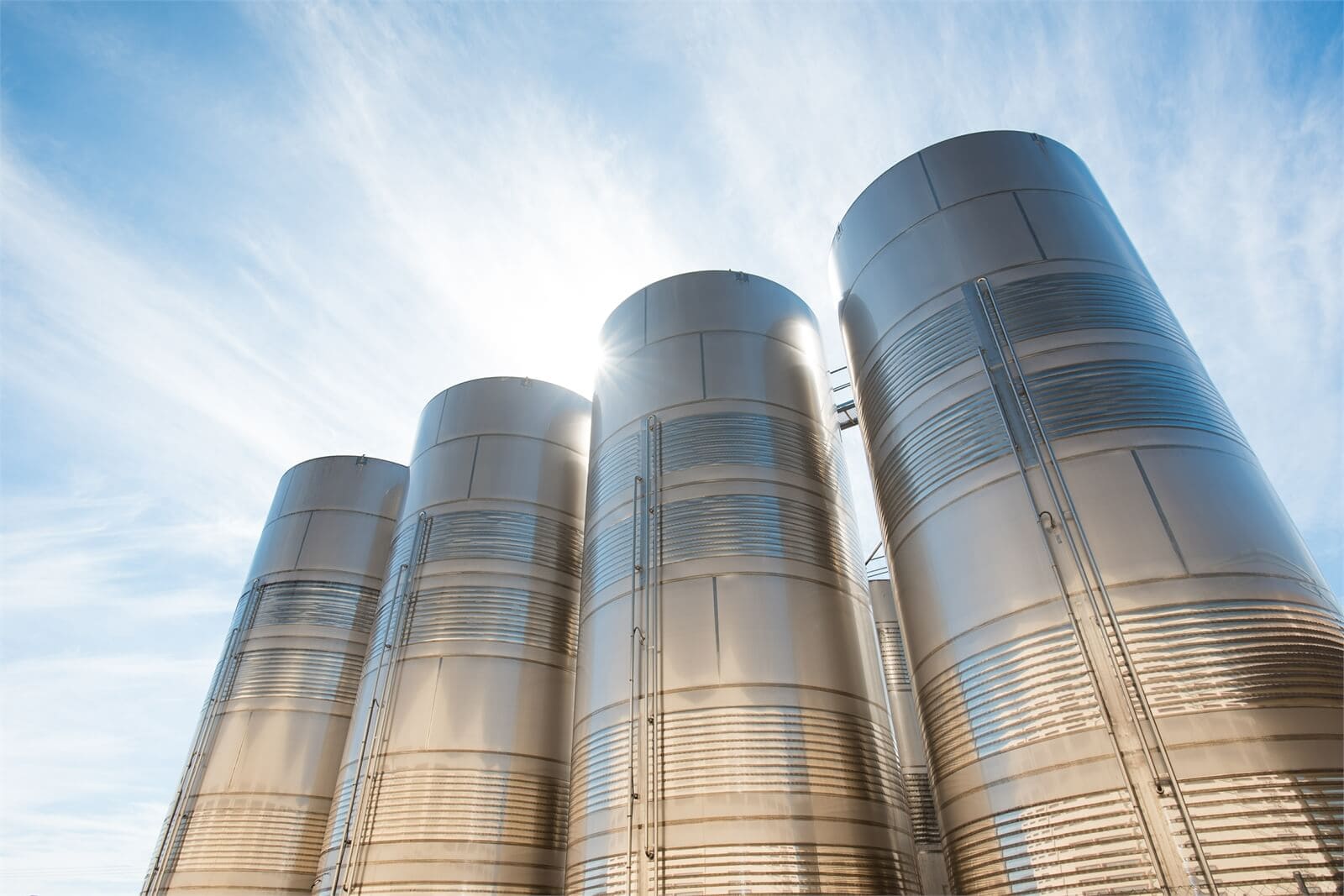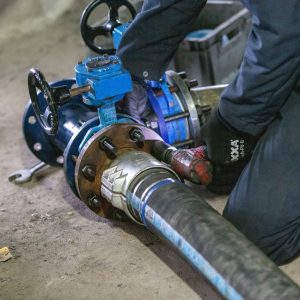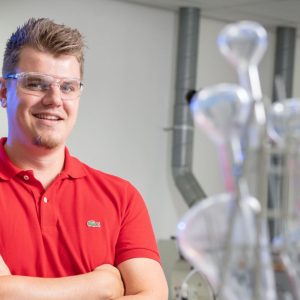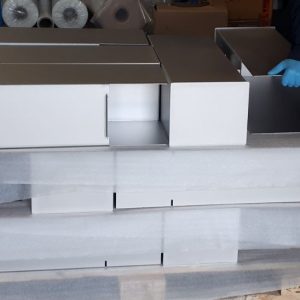Pickling in-house
Often for logistical reasons, some customers prefer to do part of the pickling work in-house. That is also possible. In that case, however, there are a number of issues that one has to deal with, such as licenses and legislation, the pickling product to use, the monitoring of the bath and the removal of the rinsing water and the saturated pickling liquid.
These are all subjects in which Vecom has extensive experience and where we are happy to advise you.
The products
Various types of pickling products are available, especially tailored to the various applications.
Pickling paste is applied with an acid-resistant brush. Low NOx variants are also available, which help to reduce toxic emissions from nitrous fumes.
Pickling spray is used to treat large stainless steel objects that, for example, due to their size cannot be immersed. Low NOx variants are also available.
Pickling liquid in which stainless steel is submerged. The higher the content of alloy in the stainless steel, the longer the pickling time will be. For overnight pickling, a diluted pickling liquid can be used in a different composition.
In all pickling methods it is very important that the stainless steel is rinsed with water very well, it is also preferred that a final rinse be carried out using demineralised water to prevent lime precipitation and negative effects caused by the chlorides in the tap water. After that, the stainless steel can be passivated by the surrounding air. This process takes 24 hours. The passivation process can be accelerated through chemical passivation using a liquid.
Monitoring a pickling bath
The composition of the pickling agent will change when using a pickling bath. During the pickling process, some substances such as iron may be released, iron forms a complex with the fluoride of the hydrofluoric acid. This results in a decrease of the free hydrofluoric acid. If the percentage of free hydrofluoric acid is lower, the pickling time will be longer. In order to achieve a constant pickling, the bath should be analysed regularly. This is done by taking samples which must be analysed at a laboratory. After the analysis the customer receives a complete report, which contains a recommendation to either increase the strength of or to possibly replace the pickling liquid, depending on the degree of saturation. It also specifies the percentage of nitric acid and free hydrofluoric acid and the concentration of iron, chromium and nickel. Based on this data, the customer will be advised on what is required or should be added in order to optimise the pickling bath.
Removal and disposal of the waste water
After pickling the stainless steel, the treated surface should be rinsed with water. The water contains a small amount of pickling acid and dissolved alloying elements, such as iron, chromium and nickel. The rinse water can not be drained in a municipal sewer system. The saturated pickling liquid should also be processed and replaced.
If detoxification of the collected rinsing water and saturated pickling liquid is not carried out in-house, a certified license holder such as Vecom can arrange for disposal and destruction. The collected waste water is then, for example, collected from the customer in 1,000 liter multiboxes or in very large quantities per tank truck. All legal obligations regarding transport and administration are taken out of your hands.
The most used and most suitable method to neutralize waste water before discharging into the sewer is D.N.D.: Detoxification, Neutralization and Dewatering.

Advice on setting up a pickling location and applying for a licence
There is a lot involved in the in-house pickling of stainless steel. For example, there are the necessary licenses, emission standards, safety and practical design of a pickling location as well as the points described above. Within our organization there is extensive experience in the field of waste water collection, waste water detoxification, acid-resistant floor coatings, extraction, use of acid-resistant materials, logistic aspects of pickling, use of safety equipment etc. In addition, Vecom can assist you with all aspects described on this page.



